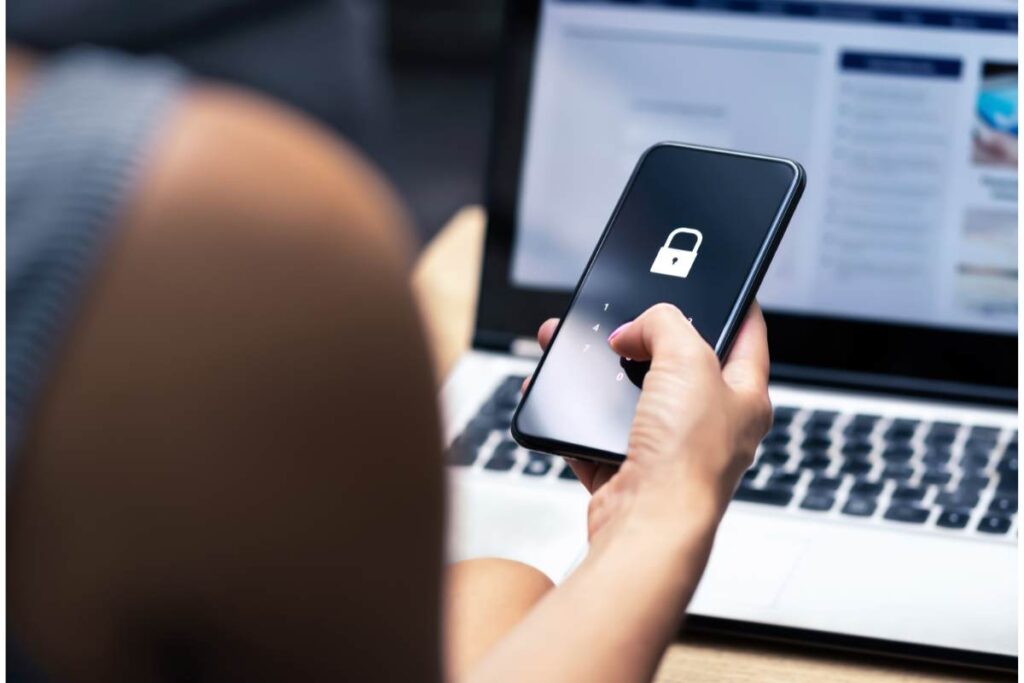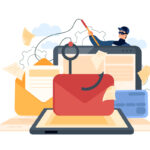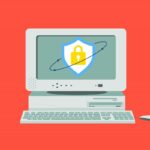Internet security advice overview
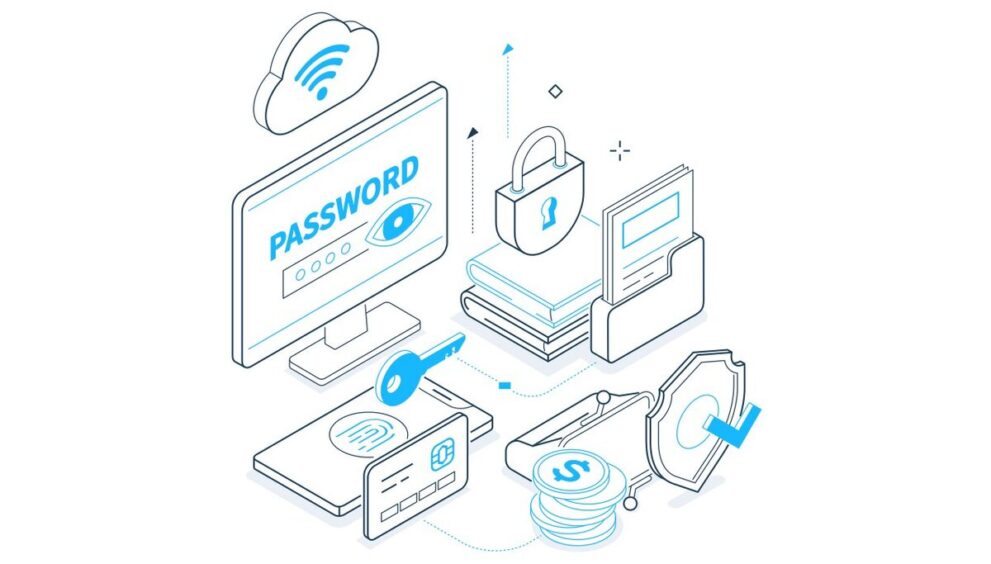
Internet security has become a top concern for people, companies, and governments as the globe moves more and more online. Staying on top of the ever-evolving threat posed by cybercrime can be challenging. But everyone may protect himself from being a victim of cybercrime by following a few simple procedures.
The following advice will help you stay secure online:
1. Employ secure passwords
Using secure passwords is one of the most crucial things you can do to safeguard your online accounts. A strong password must have a combination of upper- and lowercase letters, digits, and symbols and be at least eight characters long. Refrain from using passwords across accounts and avoid words that can be easily guessed, such as your name or birthday.
2. Maintain software updates
Security flaws in out-of-date software are one of the simplest methods for hackers to access your computer. Because of this, it’s crucial to keep your computer’s operating system and web browser updated and all other software. You need not worry about it because most software can be programmed to update itself automatically.
3. Avoid clicking links in emails or texts.
Cybercriminals may deceive you into clicking on a dangerous link by phishing. Hackers frequently send emails or texts that look like they are coming from a reliable source, but when you click the link, it will take you to a harmful website. Whenever possible, only click on links that you are sure about. When in doubt, hover your cursor over a link to see where it will take you before clicking.
4. Be cautious when downloading.
One of the simplest ways hackers can access your computer is by downloading malware. It’s crucial to be cautious while downloading because malware might pose as a trustworthy software or file. Be sure to only download files from reputable sources and to run any downloaded files through an antivirus program before opening them.
Employ a password manager.
If you’re like most individuals, use 12 or more different passwords regularly. Furthermore, if you’re like most people, you need a more effective system for managing all those passwords. You might record them in a text file on your computer or paper. You could use the same password across the board, which is never a smart idea.
Thankfully, there is a better approach to handling password management. A password manager is a piece of software that assists you in creating and managing secure, one-of-a-kind passwords for all your online accounts.
There are several password managers, but LastPass is our top pick. It works on almost all devices and is accessible as a free online and premium app that costs money.
A password manager functions as follows:
Your account has a master password that you create. You only need to remember this one password, so make sure it’s a good one you don’t use anywhere else. Then, you include all of your other passwords in the password manager. All your passwords are encrypted by the manager, who keeps them all in a safe database.
Enter your master password into the password manager each time you need to log into an account, and the password manager will automatically fill in the proper password for the account you’re trying to access. The majority of password managers additionally come with extra functions like two-factor authentication and the capacity to create secure, one-of-a-kind passwords.
Now is the moment to start utilizing a password manager if you aren’t already. This method is the easiest way to manage your passwords and ensure that each is strong and different.
1. Make secure passwords.
We all understand the need for secure passwords to protect our online accounts. But what qualifies as a strong password? We’ll review three ideas in this blog post for making secure passwords to keep your accounts safe.
1. Combine special characters, numbers, and letters.
Use a variety of different characters while making your password. Because of this, it is more challenging for someone to guess your password. Using a combination of letters, numbers, and special characters is an excellent idea.
2. Use lengthy passwords.
Adding length to your passwords is another way to make them strong. Your password’s difficulty to crack increases with length. Aim for a password that is at least eight characters long.
3. Avoid words that are simple to decipher.
When generating a password, avoid using words that can be easily guessed, such as your name, birth date, or preferred sports team. If someone knows even the slightest amount about you, they can easily assume all of these. Use a combination of random characters instead to make it more challenging to guess.
Using these three recommendations, you can develop secure passwords that can help protect your online accounts.
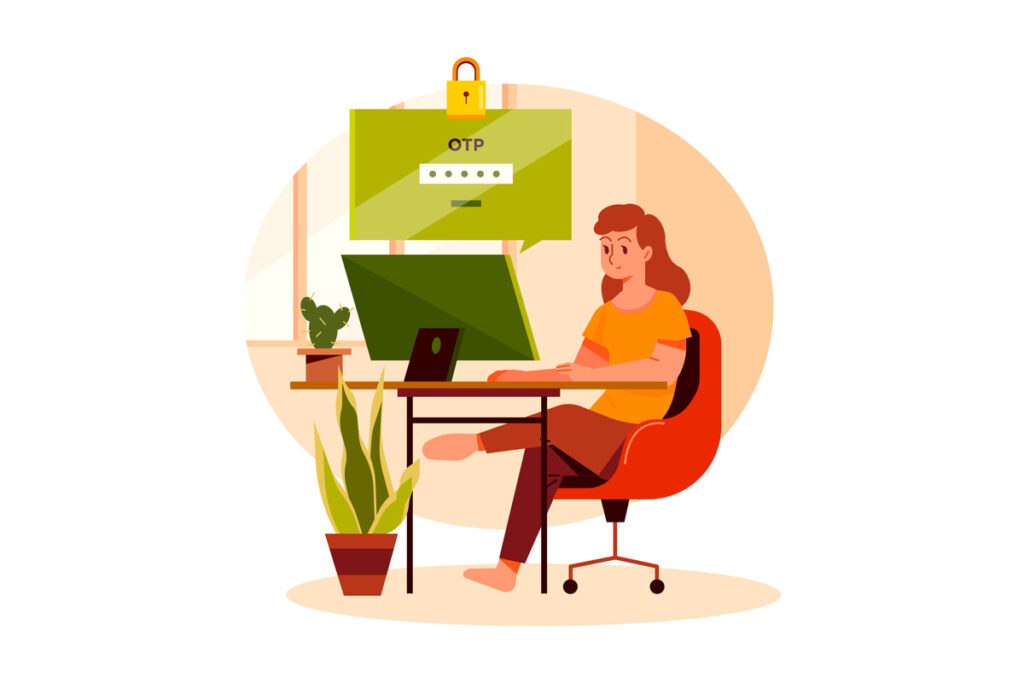
Put two-factor authentication to use.
You undoubtedly have a lot of internet accounts if you’re like most people. You might have accounts with social media sites, email services, and online banks. Additionally, there’s a significant probability that you are not using two-factor authentication (2FA), even though you might use a different password for each account.
Before logging into an account, you must confirm your identity using 2FA, an additional security measure. You accomplish this by keying in a code delivered to your phone or email.
Adding a second factor (2FA) could seem like an extra step that’s not necessary, but it’s a very effective approach to prevent account hacking. According to a Google study, 2FA can stop up to 100% of automated bot attacks.
Now is the moment to start utilizing 2FA if you aren’t already. It would help if you utilized 2FA for all your online accounts.
1. Adding a Second Layer of Security with 2FA
As we’ve already mentioned, 2FA gives your online accounts additional security. With the code delivered to your phone or email, a hacker can access your account, even if they can obtain your login and password.
2. It’s Simple to Set Up 2FA
It’s possible that configuring 2FA is a headache. But in reality, it’s quite simple to accomplish. Most significant websites and online businesses use 2FA, and it just requires a brief setup period.
3. 2FA Aids in Countering Identity Theft
A critical issue that is only growing worse is identity theft. Your credit score could be destroyed if a hacker obtains and uses your personal information to open new accounts, incur debt, and rack up charges.
4. 2FA Makes It Simple to Get Your Account Back.
2FA can assist you in regaining access to your account if you misplace your phone or forget your password. You can change your password with 2FA and receive a new code by email or phone.
Take Caution When Clicking
Awareness of internet security threats in today’s technological world is critical.
Here are five recommendations to keep you safe online:
- Take caution when clicking. Many internet users click links without giving them any second thought. However, some links may be harmful and direct you to malicious websites with malware or viruses. Only click on a link if you’re sure about it.
- Maintain software updates. To resolve security flaws, software makers constantly provide upgrades. By keeping your software updated, you better safeguard your security against the most recent security risks.
- Employ a safe browser. Make sure your browser is secure when you are accessing the internet. A browser with security features like anti-phishing and anti-malware protection is what you should look for.
- Employ a secure password. Long passwords with a combination of letters, numbers, and symbols that are difficult to guess are considered strong. Avoid using words like your name or birthday that are easily guessed.
- Use caution when posting on social media. Social networking is a fantastic tool for keeping in touch with loved ones, but you should be cautious about what you publish. Keep your home address and phone number to yourself while discussing personal matters. Be mindful that anybody can view anything you post on social media.
By considering these suggestions, you can defend yourself from threats to your online security.
Maintain Software Updates
The methods thieves can use to exploit systems and steal data evolve with technology. It’s crucial to maintain all of your software updated for this reason. You’ll have the most recent security features and patches if you use the most recent version of the software.
Setting your software to update automatically is one approach to guarantee it is always current. That will ask you to do this when you first install many programs. Check the program’s options if you’re not offered that choice or unsure whether your software is set to update automatically.
Even if your program is configured to update automatically, checking for updates regularly is always a good practice. Doing this lets you be certain you’re always using the most recent version.
An essential component of maintaining strong internet security is updating your software. You’ll be better protected against the most recent attacks if you have the most recent security features.
Keep the information private on social media.
The majority of us often overshare on social media. We publish details about our breakups, new employment, political opinions, and other private matters. And while it’s wonderful to share our lives with our loved ones, there are some things we ought to keep to ourselves.
These items are never appropriate for social media sharing:
1. Your home address
One of the most crucial things to avoid posting on social media is this. You don’t want to give your address to anyone because you never know who is browsing your profile. Only tell close friends and family your address if you must.
2. A contact number
You should not share your phone number on social media, just like you shouldn’t share your address. You don’t want to offer your phone number to scammers or spammers. If you must give out your phone number, only tell trusted loved ones.
3. Your Social Security Number
One of the most crucial pieces of information you possess is your social security number, which you should never disclose online. One of the many identity thieves may use your social security number to steal your identity. If you must disclose your social security number, do so only to trusted loved ones.
4. Details of your credit card
Your credit card information is something you should never disclose on social media, much like your social security number. Many spammers and scammers are out there, and they might exploit the information on your credit card to take your money. Only provide your credit card details to close friends and relatives if necessary.
5. Details of your bank account
Another piece of information you should never disclose on social media is the particulars of your bank account. Many spammers and con artists are out there, and they might use the information on your bank account to steal your money. Only provide your bank account details to close friends and relatives if necessary.
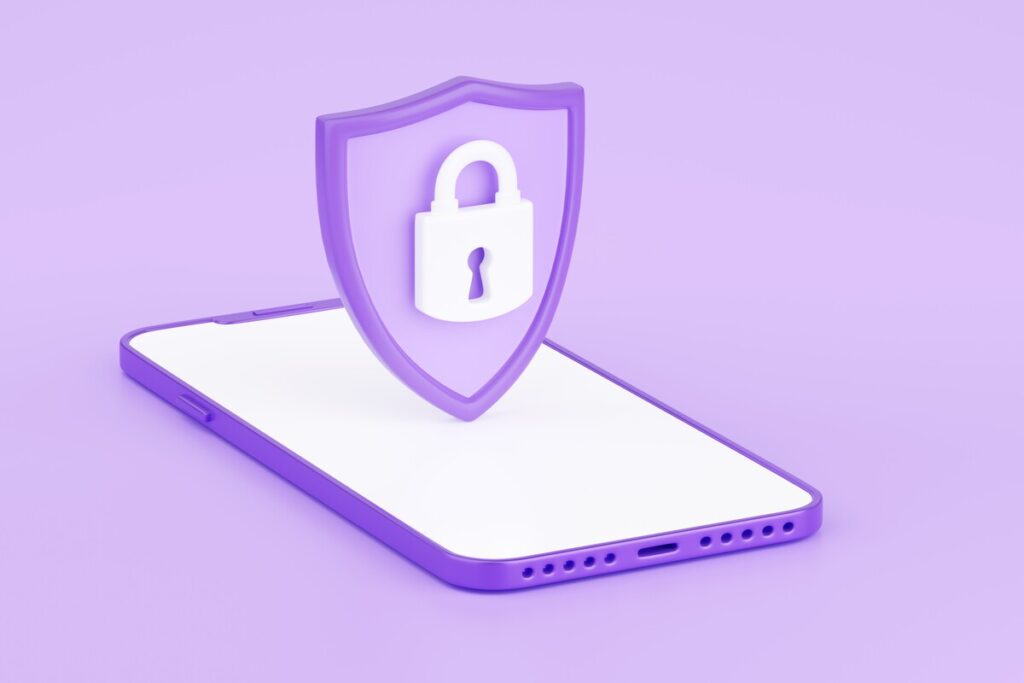
Decrease Ad Tracking
The majority of people are aware of the potential dangers of online monitoring. Still, many need to be made aware that they can take steps to reduce the amount of information gathered about them. Companies employ ad tracking to gather data about our internet activity to display relevant adverts. However, this technique may seriously jeopardize our right to privacy.
The good news is that you may restrict ad tracking on your devices. This article demonstrates enabling “Limit Ad Tracking” on your iPhone, iPad, and iPod. We’ll also offer some advice on how to safeguard your online privacy.
Ad Tracking: What Is It?
Ad tracking is gathering information about our internet activity to display relevant advertising. Companies like Google and Facebook gather this information and use it to offer us advertising that is pertinent to our interests.
To view advertisements that align with our interests, To view advertisements that align with our interests, ad tracking can be helpful. But it can also seriously jeopardize our right to privacy. It is possible because organizations that collect our data can create a thorough picture of our internet behavior. This data may also be used for other things, like political campaigns or targeted marketing, to show us advertisements we’re more likely to click on.
How to Enable Ad Tracking Limitations
Fortunately, there is a way to restrict the amount of information ad trackers gather about us. In our device’s settings, we can enable “Limit Ad Tracking” on iPhones, iPad, and iPods. It will stop businesses from gathering information about our online habits.
Go to Settings > Privacy > Advertising to enable
“Limit Ad Tracking.” Then, activate the “Limit Ad Tracking” setting by scrolling down.
Companies can no longer compile information about our online activities once “Limit Ad Tracking” is enabled. On our gadgets, though, we will still see advertisements.



